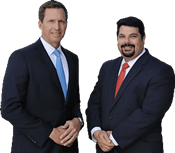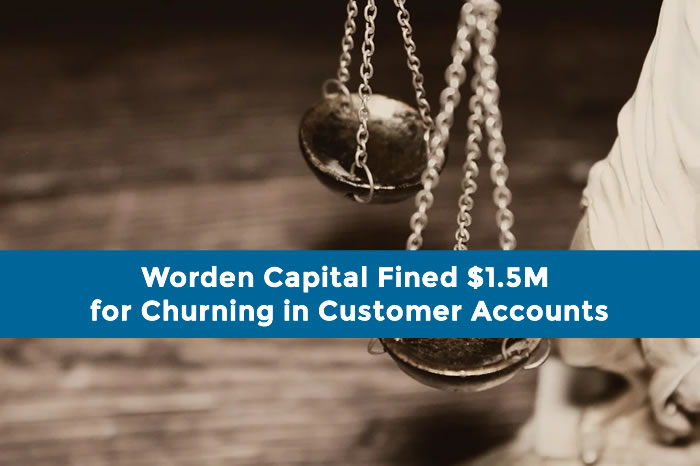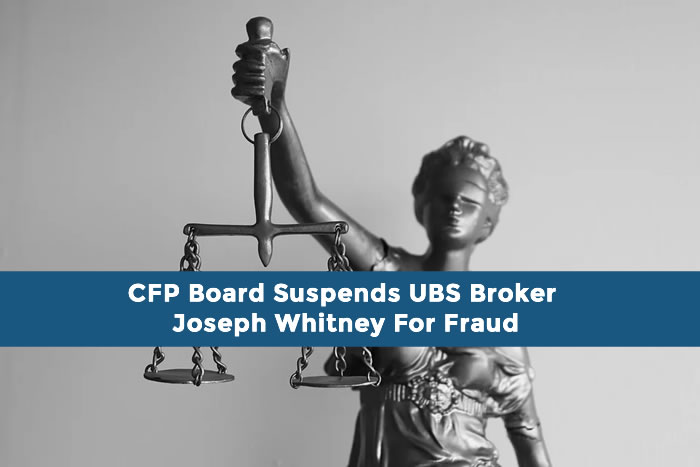Investing can be complex terrain, even for the most seasoned investors. This intricacy heightens when a trusted financial advisor finds themselves at the center of an investor dispute. Such is the case for Steven Orr, a broker registered with Grove Point Investments. Latest updates from Orr’s BrokerCheck record reveal allegations accusing Orr of recommending unsuitable investments. Furthermore, claims raise concerns that Orr overconcentrated the investors’ portfolios, with affected parties seeking $300,000. As we peel back the layers of this dispute, it’s essential to see how it’ll affect the broader financial landscape.
When financial advisors recommend unsuitable investments or overconcentrate portfolios, it disrupts the balance of risk and reward. This threatens not only the financial health of individual investors but also spells severe implications for the overall market. After all, successful investing hinges on a well-diversified portfolio, effectively diminishing potential risks and maximizing returns. Investors are vulnerable to significant losses once prices fall if substantial wealth is concentrated in a particular sector or stock.
A Closer Look into Steven Orr’s Background
The investor-broker relationship relies heavily on trust and reliability in the financial industry. Therefore, the background details of a broker can provide significant insights into the type of advice they offer. Steven Orr, a registered broker in 15 states, brings over 36 years of experience. His long-standing career passed the Series 63 Uniform Securities Agent State Law Examination, SIE – Securities Industry Essentials Examination, Series 7 General Securities Representative Examination, and the Series 6 Investment Company Products / Variable Contracts Representative Examination. Over the years, Orr has registered with Grove Point Investments, H. Beck, Dewaay Financial Network, and AAL Capital Management Corporation.
However, experience and qualifications do not guarantee performance or suitable investment recommendations. Even the most seasoned brokers, like Steven Orr, could be accused of poor investing advice. This stresses the importance of ongoing due diligence and reinforces the need for investors to be proactive in managing their funds.
 (AD) Lost money because of bad financial advice or outright fraud? You may get it back by filing a complaint. Haselkorn & Thibaut has 50+ years of experience and a 98% success rate. Don’t delay if you’ve suffered losses. (AD) Lost money because of bad financial advice or outright fraud? You may get it back by filing a complaint. Haselkorn & Thibaut has 50+ years of experience and a 98% success rate. Don’t delay if you’ve suffered losses. Call Haselkorn & Thibaut at 1-888-784-3315 for a free consultation, or visit InvestmentFraudLawyers.com to schedule. No Recovery, No Fee. |
FINRA Rule Explained
FINRA Rule 2111, known as the Suitability Rule, protects investors from unsuitable investment recommendations. Before making a recommendation, brokers must consider several factors, including clients’ financial status, risk tolerance, and other security holdings.
Simply put, a recommendation must be in the investor’s best interest, balancing risk with potential reward. In cases like Orr’s, portfolio overconcentration is deemed unsuitable. It stymies diversification and increases exposure to unnecessary risk. Investors who feel hard done by these circumstances can find solace in the FINRA Arbitration process, a mechanism designed to recover losses from such ordeals.
Consequences and Lessons Learned
A case like Orr’s serves as a stern reminder of the massive responsibility that financial advisors have, emphasizing the importance of proper due diligence by brokers. Yet, as much as it underscores the broker’s role, it also highlights the need for investors to remain vigilant. “The stock market is filled with individuals who know the price of everything but the value of nothing,” as American entrepreneur Philip Fisher noted.
As shocking as this revelation may be, it’s not uncommon. A recent Public Investors Arbitration Bar Association study revealed that over 7.3% of advisors had been involved in an investor dispute. This highlights the importance of clients regularly reviewing their broker’s performance and taking action if unsatisfied.
The responsibilities don’t stop there. Financial advisors must also remain constantly aware of their actions and their implications on clients and the broader market. Abiding by FINRA’s rules is not just legally required; it’s necessary to maintain trust within the financial ecosystem.





